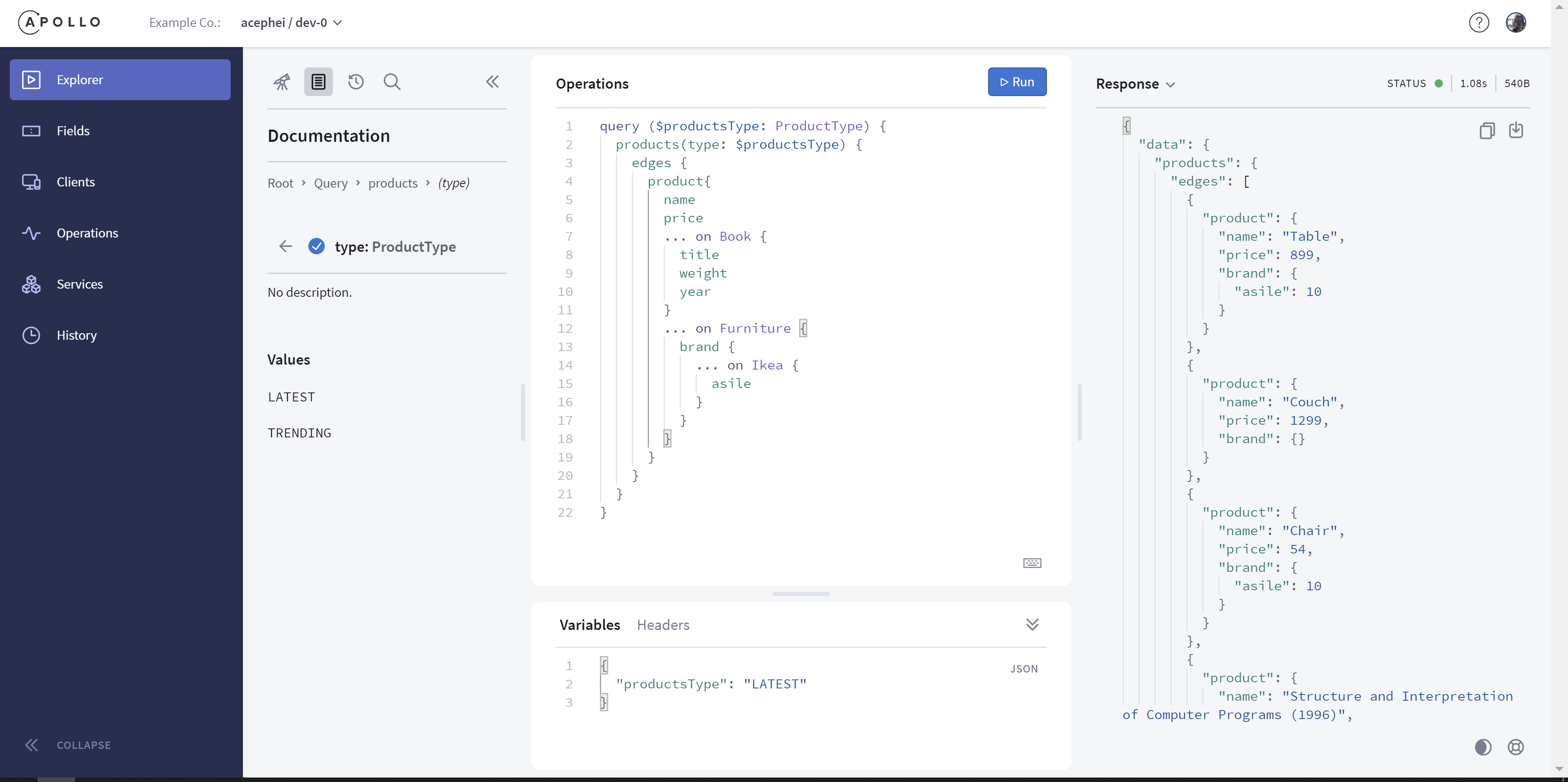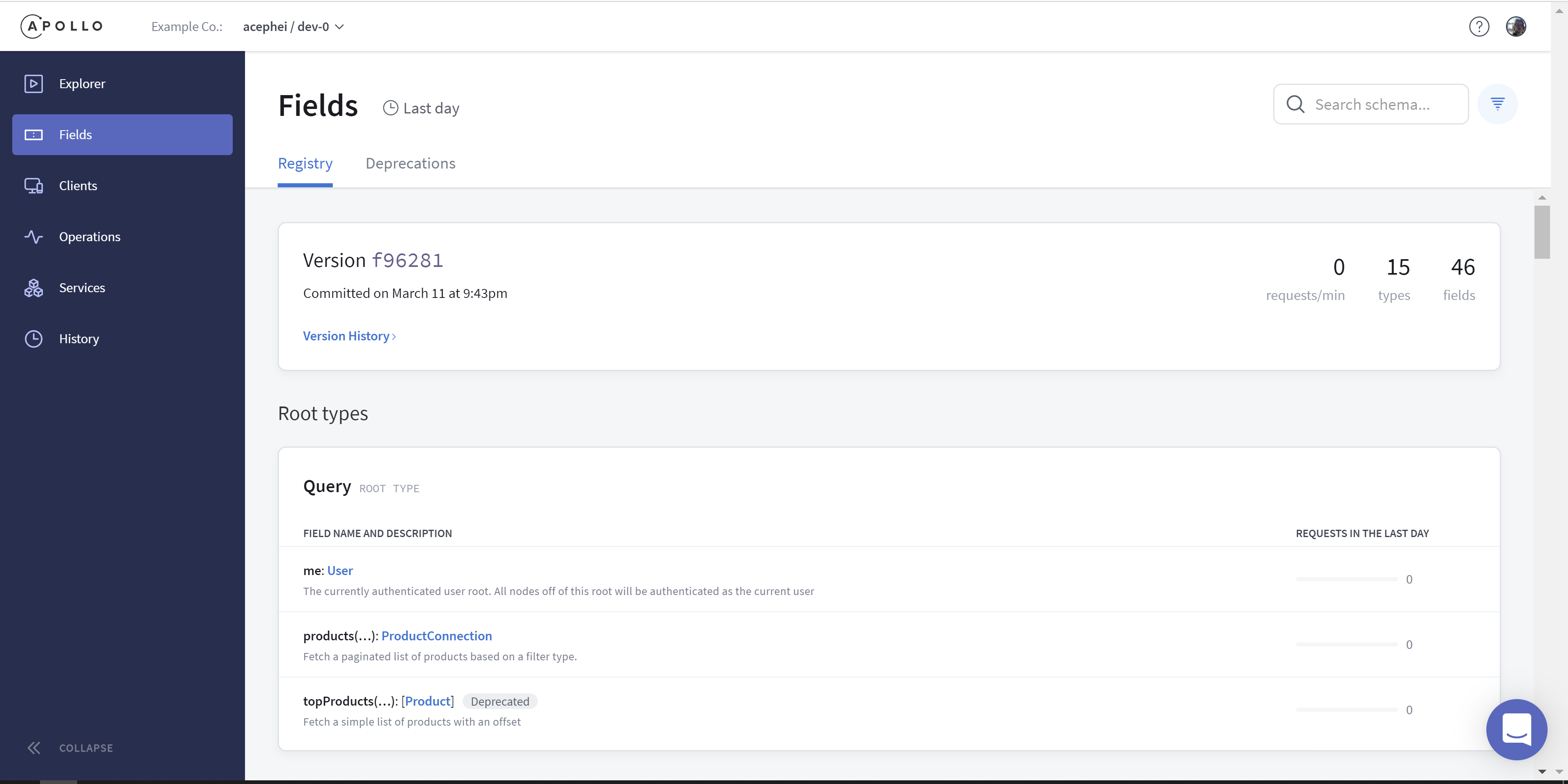For organizations that use or maintain a GraphQL API, Apollo Studio is an end-to-end data graph management platform to explore, deliver, and collaborate on their unified data graph.
This is our community repository where we track bugs, discuss feature requests, and share preview docs. We read everything that comes in here and are grateful to you for any time you spend sharing your thoughts with us.
If you ever need urgent, SLA-backed support for Studio, please email [email protected] – we can't make any guarantees about the speed of our responses on this repo. Also if you'd like to join our community forum to discuss Apollo in general, please visit community.apollographql.com.
Studio is your interface to browse the state of your graph, query your data, and manage the evolution of your graph over time. It is a pillar of the Apollo Platform, alongside Apollo Client, Apollo Server, and Apollo Federation.
- Registering your graph with Apollo Studio creates a cloud-hosted source of truth for your schema, giving you access to best-in-class tools for managing your data graph.
- Studio automatically tracks and logs changes to your schema, so you can easily review and share how your graph has evolved.
- Keep graph collaborators and consumers up to date with notifications and an automatic changelog whenever your schema changes.
- Studio’s Explorer offers the most advanced GraphQL IDE in the world.
- Search your schema intelligently and build queries with one click.
- Use Explorer in Studio’s public sandbox to explore any graph with introspection enabled
- Use Explorer with your registered graphs to create queries, browse your run history, and save variables in a context-aware environment without requiring introspection.
- Realize the full potential of an agile data graph with version control, change validation, and release observability purpose-built for GraphQL schemas.
- Prevent breaking changes to your schema by integrating Schema Checks into your existing CI/CD pipelines.
- Make changes to your schema on variants to work on new features, test performance, and run checks without changing your graph in production.
- Track federated schema launches in progress with real-time information on request traffic, gateways reporting, and error rate.
- Apollo Studio offers granular controls to keep sensitive information in your graph secure.
- With a registered graph, you can turn introspection off for security purposes while still giving users in your organization get all of the benefits of Explorer.
- Set user roles at the organization and graph level to manage how different users can interact with your schemas.
- Mark variant schemas as protected to limit mutations to only certain users or keys with admin-level access.
You can use most of the Studio tools, including Apollo Explorer, schema reference, and CI checks for free. You can also invite unlimited "read-only" users of your registry info to use these tools for free as well.
For more information about our commercial offerings and the total set of free features please see the Apollo pricing page






















